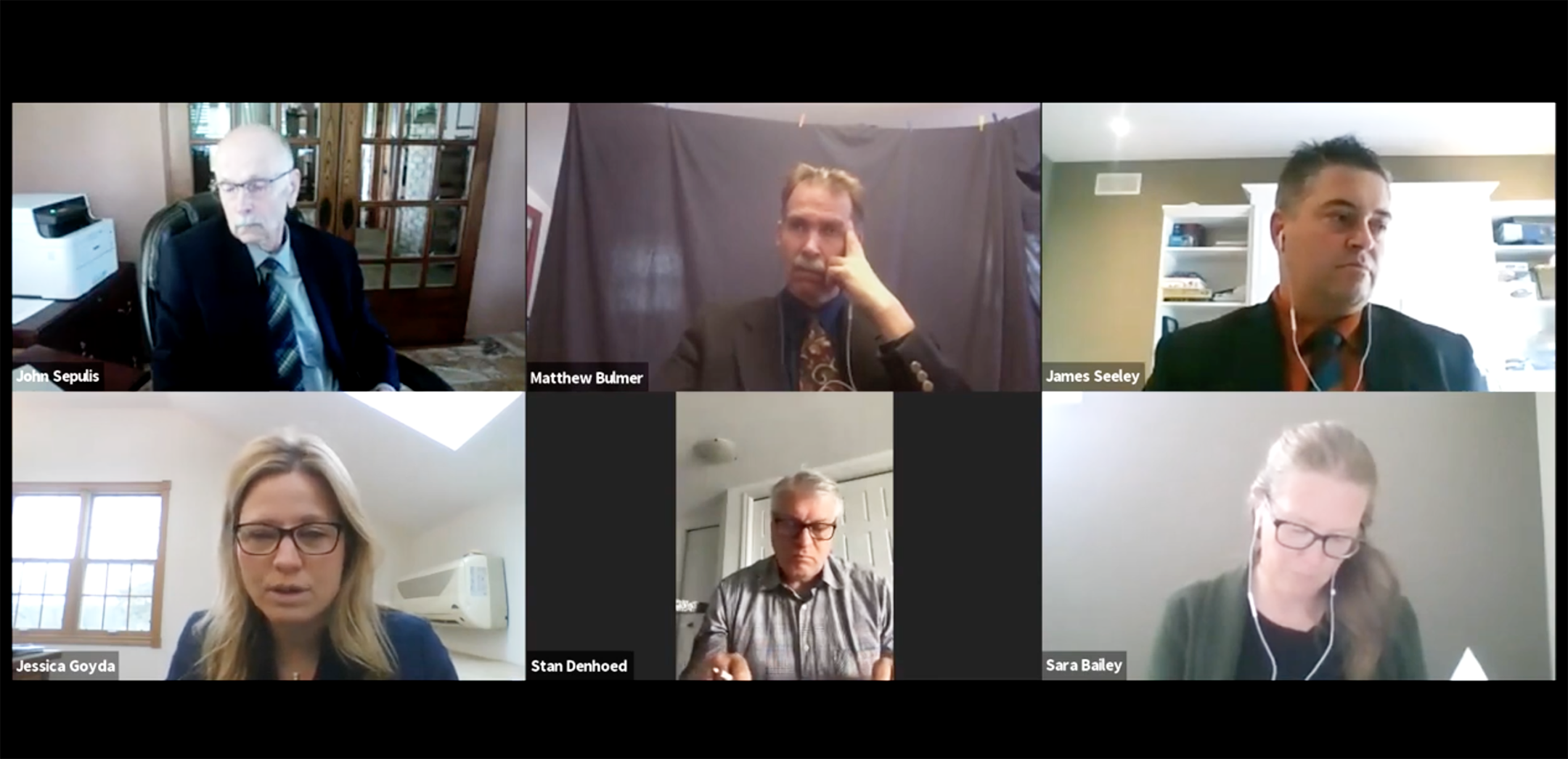PUSLINCH – Puslinch council members have raised concerns about low water levels in wetlands surrounding the Roszell Pit owned by CBM.
On May 5, Stan Denhoed, senior hydrogeologist at Harden Environmental Services Ltd., presented council with a summary of the gravel pit’s 2020 groundwater monitoring report.
It states that low water levels have occurred not only due to low levels of precipitation in 2020, but primarily because of the company’s extraction below the water table.
Furthermore, current thresholds have allowed surrounding wetlands to dry without triggering a cease in below-water table extraction.
“This has been a dry year,” Denhoed told council.
“We recognize that precipitation has been low, continuing on into this year as well. We are quite concerned about going forward at this location with the dry conditions.”
Denhoed continued, “there is a distinct, low-water-level occurrence, south of the pit. We’re seeing that the Roszell wetland that is adjacent to the pit is also experiencing historically low water levels.”
The below-water table extraction has resulted in water levels that are 40 to 50 centimetres lower than what would otherwise have occurred, he explained.
A potential impact from the extraction was expected, and a silt barrier was installed to mitigate low water levels in wetlands and ponds.
Because of the observed decline of water levels, the report indicates the silt barrier has not been effective in isolating the drawdown effect of the below-water-table extraction.
“We continue to be concerned … despite the installation of a silk barrier,” Denhoed said.
He explained he is concerned the effects of the pit are extending on the other side of the barrier, and continuing to have an effect on water levels, which then affects wetlands, ponds, and possibly shallow wells.
Denhoed also said with the spring of 2021 also being remarkably dry, this year’s water levels may be even lower.
According to Denhoed, the water level in the Roszell wetland was below the bottom of the wetland after the month of April, which is unprecedented.
“I am most concerned about the impacts that are happening south of the pit, in the area of the Roszell wetland,” he said.
“Last year, the wetland was dry from April, moving forward to the rest of the year. That is an unprecedented occurrence. Usually, you’ve got water until June or July.”
The report also states the observed water level changes are not solely due to seasonal climate changes as other sites in Puslinch Township do not have a similar water level response.
Denhoed said although water levels are low, they have not technically gone below the threshold value that was established years ago, although they are getting close.
The other issue brought up in the report was rising water temperatures, which are also near thresholds.
“We continue to see an increase in groundwater temperatures and surface water temperatures on the down-gradient side, toward Speed River,” said Denhoed.
“There continues to be elevated temperatures in ground water and in some surface water locations that could possibly have an impact on some of the fisheries there.”
The report from Harden Environmental states that in 2020 the temperature of groundwater discharging increased to 14 degrees Celsius from a baseline high of 9.5 degrees. The temperature increase exceeds original estimates of temperature change.
“When I read (this report) it comes across as fairly urgent, that this potential of low water levels is going to only get worse,” said councillor Jessica Goyda.
Councillor Matthew Bulmer said even though water levels have not technically gone below thresholds, those thresholds must have been too low in the first place since wetlands are becoming dry.
“I find it somewhat hard to understand how a threshold would have been established that would allow a wetland to go dry,” he said.
“How would that happen and it not cross a threshold?”
Bulmer said he would like to see below-water table extraction stop before the damage becomes irreversible.
“We see a history of driving on and just carrying on regardless (of temperature thresholds being breached and water levels declining), so I think we need to make our request to the ministry that below-water table extraction be ceased at this location until we get this situation under control,” he said.
He added, “These thresholds obviously need to be adjusted, addressed, and corrected, based on what we’ve actually seen going on in the area.”
Mayor James Seeley agreed with Bulmer.
“Once they dig the gravel out, the effect is there forever,” he said.
Seeley also didn’t like the idea of CBM being able to move the temperature monitoring location.
“The way I’m looking at it is they’re breaching their temperature threshold and they want to move the spot so that they’re in compliance, so they won’t have to stop operations or mitigate it,” he said.
Council unanimously passed a resolution:
- requiring CBM to complete a comprehensive review to see what contributes to lower water levels;
- requiring CBM to complete a comprehensive assessment of historical data, site conditions and current monitoring results to quantify or confirm if there are any other contributing factors to the lowering of water levels at the Roszell wetland to be provided to the township;
- requiring CBM to review and re-establish the water level thresholds in the wetland and surrounding areas to better protect these areas; and
- stating the township will ask the Ministry of Natural Resources and Forestry to require CBM to stop below water table extraction in ‘Pond C’ until concerns are addressed to the township’s satisfaction.




